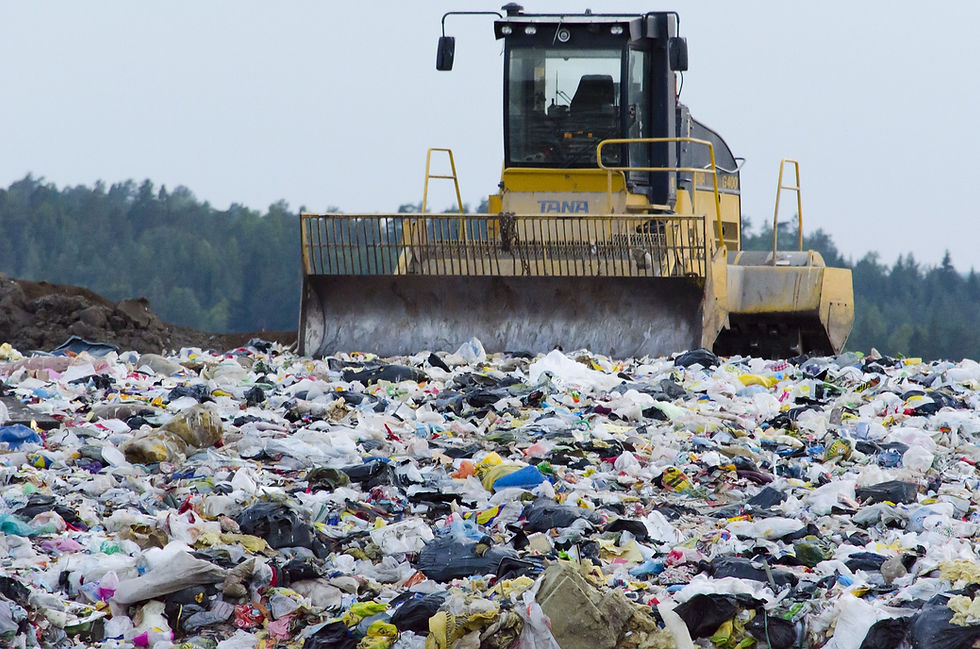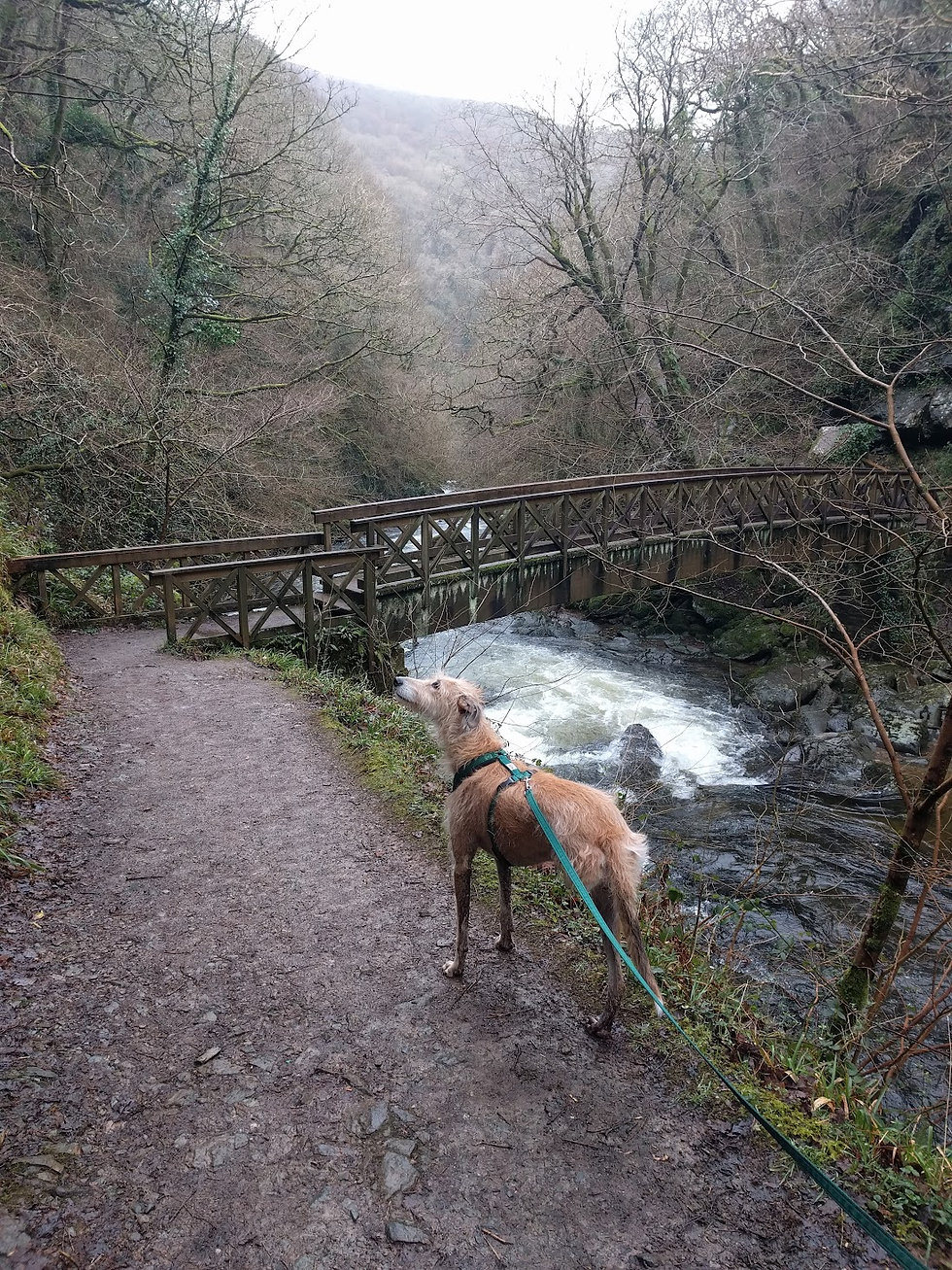How to be an eco-friendly dog owner
- Harriet Alexander
- Oct 21, 2018
- 4 min read
There’s no getting around the fact that pet ownership takes its toll on the environment. With an estimated population of over 500 million dogs worldwide, and a booming pet industry creating more products every year, it’s a good idea to think about how to reduce your furry friend’s carbon paw print.

Consider rescuing
Each year 6-8 million cats and dogs enter rescues and shelters in the US alone, and of these more than 3 million are euthanised. Pet overpopulation is a major problem around the globe. The practice of pet breeding worldwide, often for profit, is not particularly sustainable. Adopting a pet from a rescue not only saves that individual, but it also reduces the strain on often overburdened rescue organisations with limited resources.
Manage that waste
In just the United Kingdom, the dog population creates more than 1,000 tonnes of dog poo each day. Dog poo (and the way it's disposed of) is a problem around the globe, so make sure to at least pick it up using biodegradable bags – these typically break down in about one month rather than an estimated 1,500 years for a plastic bag in landfill. A tip for keeping costs down is to look for biodegradable nappy bags, as these can often be cheaper than the ones made for dogs.
For those with a bit of garden space, you could also consider creating your own dog waste composter, either by purchasing one or doing some DIY. Just remember that dog waste compost isn’t suitable for plants meant for human consumption.

Food matters
The majority of commercial dog foods are full of unpleasant ingredients, such as low-grade animal by-products, additives and preservatives (you can read more about feeding your dog here). The healthiest and most sustainable dog foods are minimally processed with locally sourced ingredients, so pay close attention to the fine print on any packaging and do your research. Buying in bulk saves on packaging, and as beef production uses more resources than other proteins, you could also try switching to alternatives such as chicken, kangaroo or rabbit.
If you have the time, consider making your own dog treats to save on unnecessary packaging. Try this easy liver bite recipe!
Thoughtful shopping
A lot of pet products (especially toys) are made from cheap materials, which take thousands of years to decompose. Green pet products are now becoming more readily available, like those from The Natural Pet Store. Alternatively, make your own toys with recycling such as bottles, paper bags, fabrics and paper rolls. Charity shops can be a great source of toys as well.
Donate and recycle
Before you discard any unwanted dog items, consider donating them to your local rescue. Rescue organisations are often in need of toys, dog beds and blankets. If your dog has got a bit bored of his toy collection, why not swap with a friend? Not only will your dog have some new items to enjoy, they will also be covered in lots of interesting 'other dog' smells!

Housetrain sustainably
As any new puppy owner can probably (despairingly) tell you, housetraining takes time. This can result in a lot of discarded paper towel and puppy pads. Consider using washable puppy pads, and use towels or old rags to clean the mess up instead. This is also applicable to unwell or elderly dogs who have become incontinent.
Reduce those toxins
Cleaning products and pet products often contain toxic chemicals, which not only harm our pets but also harm the environment. Switch to homemade or natural products, and make sure to wash your dog using natural pet care products. If you take them to the groomer, ask for this option. This useful article from dog trainer Winkie Spiers talks about what to look out for and lists some cheap and easy alternatives.
Store and package with care
A lot of people bring their reusable shopping bags to the supermarket, but remember to take them to the pet store as well. Rather than store treats and food in disposable bags, pop them in reusable containers or treat jars. If you take a plastic water bottle for your dog when out and about, switch to a reusable and washable one. I recently purchased one of these bottles after a client recommended it – it’s perfect as you can pour any unwanted water straight back into the bottle.

Be nice to nature during walks
Are you in the habit of always driving to that nearby dog park? Keep walks varied for your dog and keep fuel consumption down by going on some new street walks and exploring areas on foot. You could even arrange some more local walks with neighbours and friends who have their own dogs.
If your dog is prone to wandering off or you are in an area with a lot of wildlife, be sensible and keep your dog on lead. Dogs can easily disturb or harm other animals, which is particularly important when wild animals are breeding and raising their young.
Eco-friendly ice melting
For those in cold climates who need to melt some ice, use a pet safe de-icer like this one. Antifeeze and salt-based products are not only harmful to pets, they can also contaminate waterways and drinking supplies.
A few changes and a little common sense can go a long way to reducing the impact of dog ownership on the environment. Do you have any tips for keeping things as eco-friendly as possible?




Comments